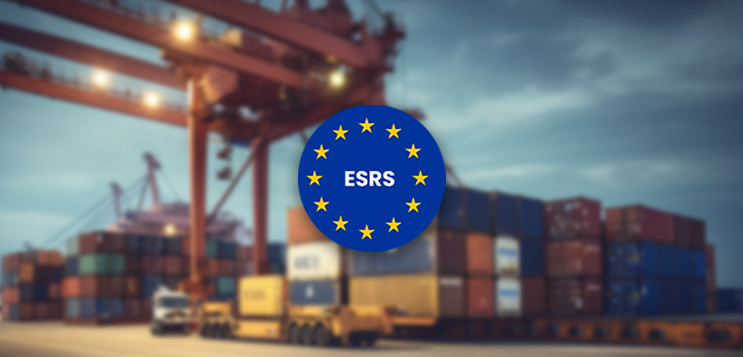
The world is watching as businesses everywhere face mounting pressure to adopt sustainable practices. The European Union’s introduction of the European Sustainability Reporting Standards (ESRS), developed as part of the broader Corporate Sustainability Reporting Directive (CSRD), marks a significant turning point. For Indian exporters, this is a defining moment, as compliance with these new standards becomes crucial to maintaining access to one of their largest markets.
The ESRS aims to improvetransparency and accountability in businesses’ environmental, social, and governance (ESG) practices. While these standards are mandatory for companies operating within the EU, their reach extends beyond Europe’s borders, especially for nations like India that rely heavily on exports to the EU market. The EU is a major trading partner for India, with €113.175 bn of bilateral trade in 2023, with India’s export to the EU worth €64.860 bn. With the establishment of ESRS, India’s export landscape could see significant shifts. These changes are not limited to environmental concerns alone, as ESRS demands a holistic approach to sustainability, encompassing labour rights, corporate governance and responsible business practices.
Challenges for Indian Exporters
- Compliance Costs and Competitive Disadvantage
One of the primary challenges for Indian exporters is the cost and complexity of implementing ESRS requirements. Large corporations may have the resources to invest in sustainable technologies, better reporting systems and the infrastructure needed to comply with ESRS. However, for many small and medium enterprises (SMEs), this can be overwhelming. From tracking carbon emissions to ensuring fair labour practices across supply chains, the operational changes required can be financially and logistically burdensome. This raises the possibility of smaller players being edged out of the EU market if they fail to adapt.
- Pressure on Supply Chains
The ESRS places significant emphasis on traceability and accountability throughout the entire supply chain. For example, a textile exporter must ensure that the raw materials used, such as cotton, are sourced sustainably and that all labour involved adheres to fair trade standards. In agriculture, the focus may be on minimising pesticide use, reducing water consumption and maintaining biodiversity. Many Indian businesses, particularly in rural areas, lack the infrastructure and awareness to meet these standards. This is particularly difficult for sectors like agriculture, where small-scale farmers form a significant part of the supply chain.
- Heightened Focus on Sustainability Reporting
The ESRS framework is designed to ensure that companies report comprehensively on their sustainability practices, including carbon emissions, energy usage, water consumption and social factors like labour conditions. For Indian exporters, especially those in resource-heavy industries like textiles and agriculture, meeting these reporting requirements will necessitate substantial changes in how they operate. This could include adopting new technologies to monitor environmental impact or restructuring supply chains to ensure compliance with social and governance standards.
Compliance with ESRS could allow Indian exporters to position themselves as leaders in sustainable trade, gaining access to premium markets willing to pay a higher price for goods that meet ESG criteria. Furthermore, the Indian government and industry bodies could play a pivotal role in supporting businesses through this transition. Providing financial incentives, offering training programs on sustainability practices and promoting collaborations between the private sector and NGOs could help alleviate the burden on smaller exporters.
Though the government has recognised the need to support exports in meeting these global sustainability standards, more can be done to assist SMEs, which make up the majority of India’s exporters. Financial incentives, capacity-building programs, and partnerships between the public and private sectors could help bridge the gap and ensure that smaller companies are not left behind.
Without significant and immediate support from both the government and industry bodies, many Indian exporters will find themselves unable to compete in the EU, potentially leading to a sharp decline in trade with one of India’s key partners. The path ahead for Indian exporters is not an easy one, and the consequences of failing to adapt could be severe.
